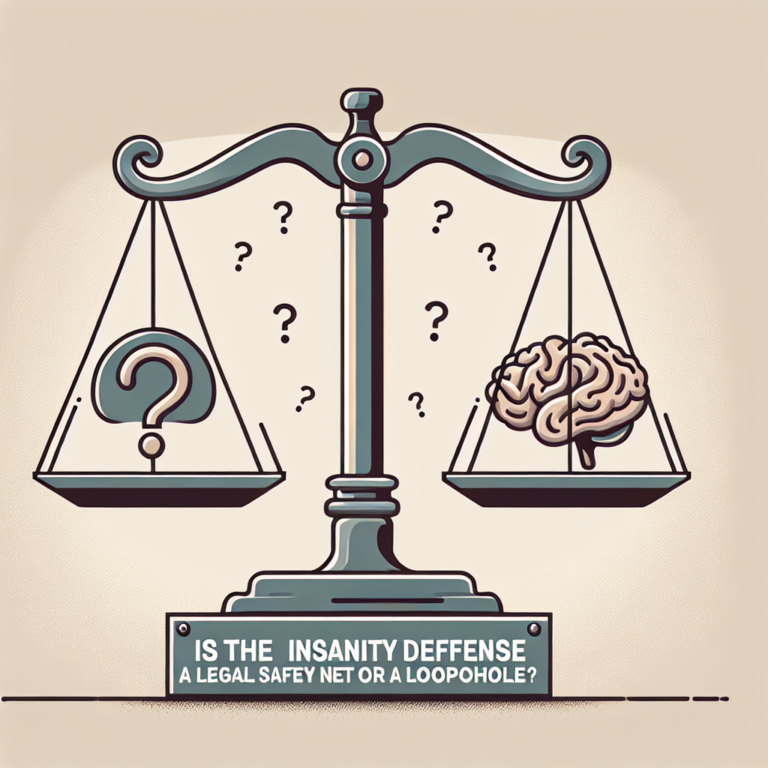
Introduction
In a world constantly pulling us in multiple directions, mastering self-control has become more essential than ever. We often find ourselves caught in a whirlwind of distractions—be it from technology, fast-paced lifestyles, or societal expectations. The ability to exert self-control doesn’t just enhance our daily productivity; it can shape our overall well-being, ensuring we are on a path toward success, both personally and professionally. In this exploration of Mastering the Mind: The Fundamentals of Self-Control Theory, we will delve into the core tenets of self-control, backed by scientific research, real-world case studies, and practical applications.
Why Self-Control Matters
To appreciate the significance of self-control, consider this: a lack of it can lead to impulsive decisions, procrastination, and eventually, dissatisfaction in life. According to a study published in the journal Psychological Science, individuals who exhibited higher self-control were not only more successful in academic settings but also experienced greater overall happiness. This underscores the idea that mastering the mind and mastering self-control are intricately linked.
Understanding Self-Control Theory
What is Self-Control?
Self-control, simply put, is the ability to regulate one’s emotions, thoughts, and behavior in the face of temptations and impulses. It’s about resisting the allure of immediate gratification in favor of long-term goals. This definition closely aligns with the foundations of Mastering the Mind: The Fundamentals of Self-Control Theory.
Historical Context
The roots of self-control theory can be traced back to ancient philosophy but gained empirical traction in the late 20th century with the emergence of psychological research. Renowned psychologist Walter Mischel performed the famous "marshmallow experiment" in the 1970s, which illustrated the principle of delayed gratification. This pivotal study became a cornerstone in understanding the dynamics of self-control.
Key Components of Self-Control
Delay Discounting: This term refers to the tendency to devalue rewards that are delayed. Individuals with high self-control can better resist immediate rewards for larger future gains.
Cognitive Control: This component involves the mental processes that allow you to focus on long-term goals while disregarding distractions.
- Emotional Regulation: Successfully managing one’s emotional responses can directly influence the ability to self-regulate behavior.
Real-World Applications of Self-Control Theory
Case Study 1: The Success of High Achievers
One compelling case study can be seen in the lives of high achievers like Elon Musk and Oprah Winfrey. Both individuals have often emphasized the importance of discipline and self-control in their journeys. Musk’s rigorous daily schedule is a testament to the itemization of goals and the reluctance to indulge in distractions. By developing and maintaining their self-control, they can pursue their ambitious objectives tirelessly.
Analysis: High achievers often display extraordinary self-discipline, which enables them to achieve their ambitious goals. This real-world example contributes to understanding the data seen in self-control theory.
Table 1: Characteristics of Individuals with High vs. Low Self-Control
| Characteristics | High Self-Control | Low Self-Control |
|---|---|---|
| Delay Discounting | Less reliance on immediate rewards | Greater inclination to immediate gratification |
| Emotional Regulation | Handles stress well | Prone to emotional outbursts |
| Time Management | Prioritizes effectively | Often overwhelmed or procrastinates |
| Goal Setting | Sets and meets long-term goals | Struggles with planning |
Techniques for Mastering Self-Control
Mindfulness and Meditation
Research indicates that practicing mindfulness can significantly enhance self-control. By fostering greater awareness of present actions and thoughts, one can mitigate impulsive behavior.
Implementation Intentions
Another effective technique is creating "if-then" plans. For example, "If I feel the urge to check my phone during study hours, then I will take a deep breath and focus on my tasks." This technique, known as an implementation intention, adds structure to self-regulation efforts.
Accountability Partners
Engaging in shared goals with an accountability partner fosters commitment and encourages self-control. When you articulate your objectives to someone else, you embed them more deeply into your psyche, making it harder to stray from them.
Exercise as a Tool
Physical exercise can enhance self-control. A study published in the journal Health Psychology showed that individuals who engaged in regular physical activity reported better self-control in other areas of their lives. When you physically challenge yourself, training your body and mind, it leads to gains in mental resilience.
Building a Self-Control Framework
Establish Clear Goals
To master self-control, begin by articulating clear, achievable goals. Break these down into actionable steps, allowing smaller, manageable tasks that lead to larger successes.
Time Management Strategies
Effective time management can aid in setting boundaries around temptations. Tools like the Pomodoro Technique can help create a focus period, allowing short breaks afterward to combat fatigue and promote ongoing motivation.
Chart Progress
Regularly chart your successes and failures in terms of self-control. Visualization of progress or setbacks can provide clarity and demonstrate your growth over time.
Conclusion
In conclusion, Mastering the Mind: The Fundamentals of Self-Control Theory provides critical insights into the essence of self-discipline. From understanding its historical context to applying real-world techniques for enhancement, it is clear that self-control can transform our lives. Whether through mindfulness, exercise, or simply adopting better habits, the journey toward mastering one’s mind is both attainable and essential.
Actionable Insights
- Start Journaling: Track daily goals and temptations to grasp your triggers.
- Practice Mindfulness Daily: Even a few minutes can make a significant difference.
- Set Implementation Intentions: Develop mental scenarios to prepare for challenges.
- Engage in Healthy Activities: Exercise can bolster your self-control muscle.
- Seek Accountability: Share your goals with a partner or friend for increased commitment.
FAQs
What is self-control?
Self-control is the ability to regulate one’s impulses, emotions, and behaviors to achieve long-term goals rather than succumbing to immediate gratifications.Why is mastering self-control important?
Mastering self-control helps individuals make better choices, achieve goals, and ultimately leads to increased happiness and life satisfaction.How can I improve my self-control?
Techniques like mindfulness, setting clear goals, engaging in exercise, and utilizing accountability partners are effective methods to enhance self-control.What are some common pitfalls to self-control?
Distractions, emotional triggers, and immediate temptations can all undermine self-control efforts.- Can self-control be learned?
Yes, self-control is a skill that can be developed over time through practice and effective strategies.
By incorporating these insights and techniques into your daily life, you can embark on your journey toward Mastering the Mind: The Fundamentals of Self-Control Theory. The commitment to self-control is a lifelong journey that promises rewards far greater than immediate satisfaction.














